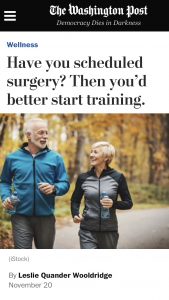So I love getting out to events and listening to live music. But these fun activities can have a down side. Sadly.
If you’re around loud sounds, you should know that you could be at risk for tinnitus and noise-induced hearing loss, too. These sounds can show up anywhere, from your favorite sporting events to concerts and bars.
Because this topic is so important, and because it can affect so many people, I wrote about how to avoid hearing loss and damage earlier this year for Men’s Health. Even now, the topic keeps coming up in my everyday life. Maybe because I know so many other music lovers.
The facts: Sounds are measured in decibels (dB). Those higher than 85 dB can permanently damage the hair cells in your inner ear with extended exposure, leading to hearing loss or actual damage. And it can be years before you start to notice the effects.
Please check out my story for five tips on how to protect your hearing. I do these things myself. Then tell me what you think!
Have you ever had a hearing scare, or noticed when sounds were too loud? Taking action now can help you later.


